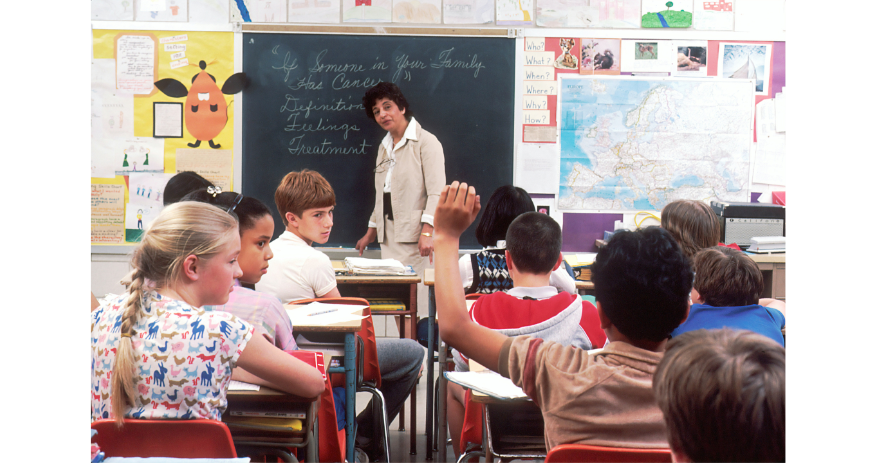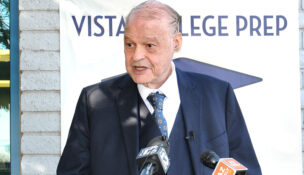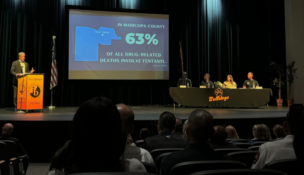Hiking teacher pay a priority as lawmakers prepare to renew Prop. 123
Kiera Riley Arizona Capitol Times//January 9, 2025//[read_meter]
Hiking teacher pay a priority as lawmakers prepare to renew Prop. 123
Kiera Riley Arizona Capitol Times//January 9, 2025//[read_meter]
With the general fund set to take on dollars previously provided by the state land trust through Proposition 123 at the end of the fiscal year, the goal of both the House and Senate Education Committee chairs is to create greater assurance that dollars go directly to the classroom.
Orbiting a potential for a Prop. 123 renewal comes questions from sessions past on teacher pay and retention, “administrative bloat” and support, student performance and general accountability across the education spectrum.
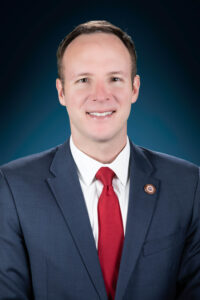
“Money needs to be directed to the classroom and to the teachers,” House Education Chair Rep. Matt Gress, R-Phoenix, said. “One of the challenges for student achievement is the lack of qualified teachers. We get vacancies, high turnover and it’s the hardest to recruit. Compensation is one major element in that calculus.”
Proposition 123 is emerging as a lead issue this session as a fiscal lapse looms. Though schools will not lose money, as budget projections already outfit the general fund to cover dollars currently coming from the state land trust fund, a reimagination of the funding source offers the opportunity to increase teacher pay or otherwise supplement education.
“I would rather have that money in the classroom serving Arizona students than being invested on Wall Street. And that’s the opportunity we have here with the renewal,” Gress said.
Gress, and Sen. J.D. Mesnard, R-Coolidge, are spearheading the effort to renew Prop. 123 this session. For his part, Gress said he is making it a point to see the measure renewed “as soon as possible” and wants to see all the money spent on raising teacher pay.
Though Gress and Mesnard have yet to propose a formal plan, renewal of the measure could likely come with strings attached. In past legislative proposals for Prop. 123, lawmakers tied in teacher performance benchmarks to salary increases and required annual reports on spending.
“A lot of my Republican colleagues will not be happy with a blank check to K-12 education,” Gress said. “They would like to see it achieve certain policy objectives. Chiefly, we want to make sure that the money gets into the classroom, and that it’s not gobbled up by administration.”
A similar theme is floating around the Senate too, with minted Senate Education chair David Farnsworth repeating the claim that dollars are not making it into the classroom as intended.
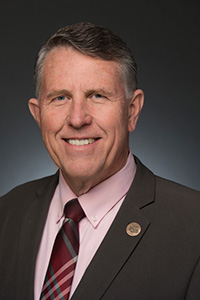
“We spend billions of dollars towards K through 12 education every year, and the K through 12 education is the biggest expenditure in the state budget. One of my main concerns is that the money doesn’t seem to be getting into the classroom sufficiently, and that’s been a challenge for a long time,” Farnsworth said. “I think we have plenty of money already, but we need to reallocate the direction of those expenditures.”
As for Prop. 123, Farnsworth noted a lack of specifics at this juncture, but said he wanted to see the same distribution rate from the state land trust continued, not increased.Beyond funding, Farnsworth said for his committee, he noted the need for some “fine tuning” of school choice programs.
“If I had a number one priority, it would probably be just to make sure we don’t go backwards at all, but we maintain the excellent lead. Arizona needs to continue to offer parents as many high quality education options, because school choice involves the whole gamut,” Farnsworth said.
“Public schools have challenges, and we need to strengthen them. We should have the best public schools in the nation, along with continuing the progress we’ve made with charter schools, private schools, homeschooling, and the ESA program. All those things are vital.”
Farnsworth said he had “utterly refused” to be a member of the Education Committee in the past session, deeming it a “controversial” and “extremely challenging” area.
“I didn’t want to be in that pot that was continually stirred,” Farnsworth said. “However, when I was asked to be the chairman, I decided that, well, if I can stir the pot, instead of being stirred, I’m willing to do it. Obviously there’s nothing more important than educating our young people.”
He added that though he is fresh to education, he is open to new perspectives and said he replaced his desk with a large table.
“If you, for instance, have wise people sitting around the table, you put a problem in the middle of the table, and then you discuss how to solve it,” Farnsworth said. “That’s my management style is to seek advice from people wiser and more experienced than I am.”
At the House Education Committee, Gress said plans to take up three main categories of legislation: school safety, student achievement and accountability.
As chairman of the Audit Committee, Gress said he had seen districts failing to meet reporting requirements, prompting some “digging” into the question of assured accountability. Though Gress wants to focus on accountability for “districts in particular,” he did note concerns within the Empowerment Scholarship Account program, too.
“In my view, the biggest concern is the time it takes to get reimbursements. Most reimbursement requests are legitimate. There are some fraudulent ESA requests,” Gress said. “So, we need to better understand what measures are being put in place by the Department of Education to ensure the dollars get to kids and that they are spent for the benefit of the child’s education.”
The House Education Committee’s first meeting is scheduled for Jan. 14, with a presentation on school safety and a Sunset Review of the School Facilities Oversight Board on the docket.

